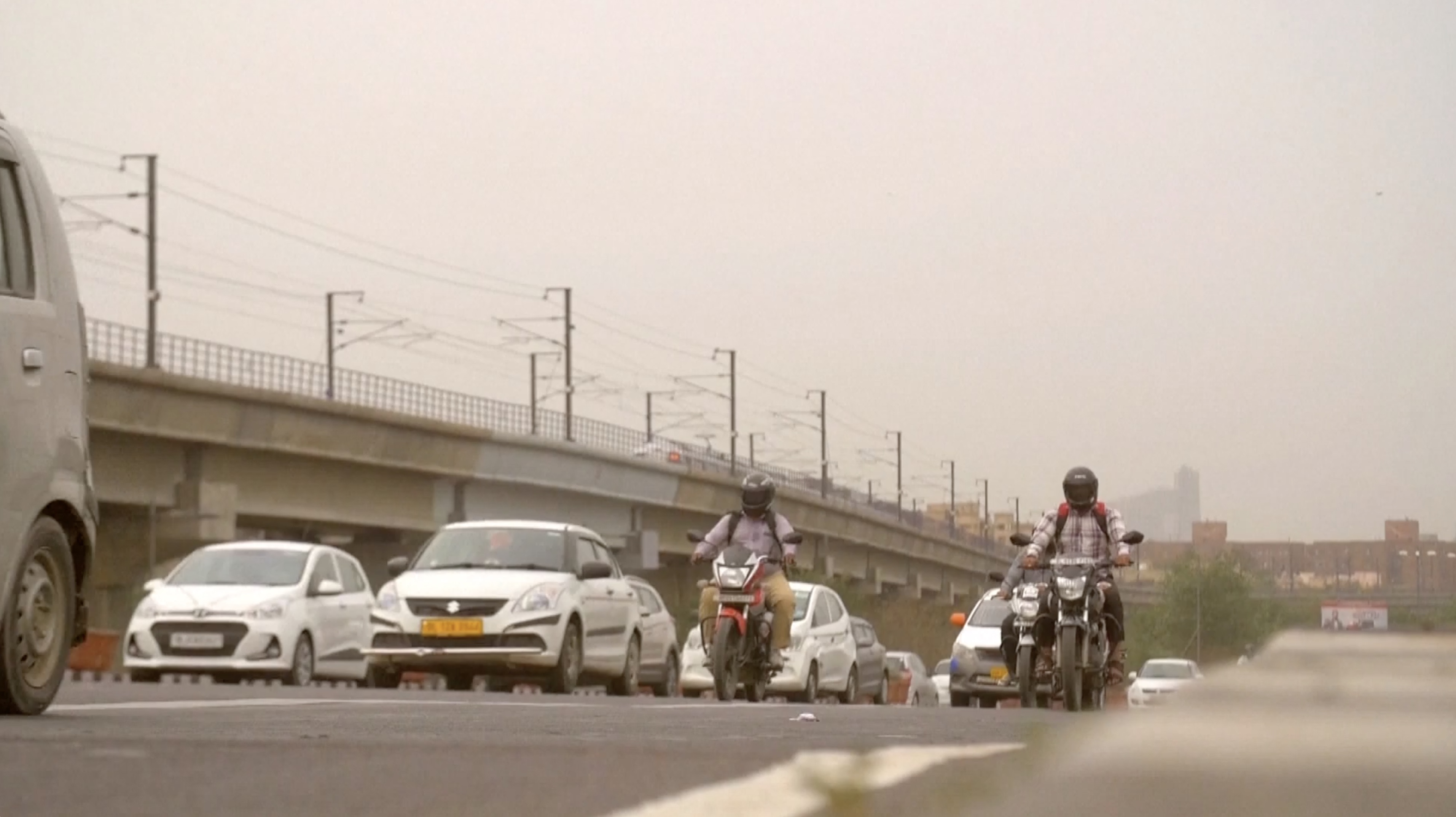
As extreme heat rages in India with alerts being issued in many parts of the country, a climate scientist at Imperial College London has set out several major factors behind the hot weather, such as the delayed monsoon and global warming effects.
This week, temperatures in some Indian cities hit 45 degrees Celsius, not only triggering alerts but also causing deaths and heat-related illnesses in some areas, with local hospitals being swamped by heatstroke patients, according to Indian authorities.
Paulo Ceppi, a climate expert, told CMG the delayed monsoon, a major reason for the high temperature, has resulted in a significant decrease in rainfall in northern India.
"This time of the year is typically the hottest time of the year in northern India. It's before the monsoon comes. Now, one factor that's making it even hotter than usual this year is that the monsoon onset is delayed. So, the monsoon brings clouds and rain, and it brings a relief from the heat. And this year, this is coming later and therefore the conditions are warmer than they normally would be," said Ceppi.
A second factor, the process of global warming, is causing more frequent extreme weather than ever before, according to Ceppi. He explained that a heat wave that would have occurred once in 50 years before humans caused the climate to change, now occurs once every 10 years.
"And then the other factor, of course, is climate change and the fact that we know temperatures are increasing globally. And what this means is that pretty much everywhere heat waves are getting more frequent and also more intense. So, in the same region in northern India, there was already a severe heat wave very recently in April this year 2023, and colleagues have estimated that it was made about approximately 30 times more likely by climate change," said the scientist.
Meanwhile, the expert also called for urgent steps to limit greenhouse gas emissions.
"Scientific facts are that as long as we continue emitting greenhouse gases, global temperatures will continue rising. So, that's a fact, and the core area of that is only once we stop emitting and we get to net zero emissions will we stabilize global temperatures. So really, the point is that if we want to limit these heat waves and we want to prevent them and other climate impacts from getting even worse, then we need to get to net zero as fast as possible," said Ceppi.
(If you have specific expertise and want to contribute, or if you have a topic of interest that you'd like to share with us, please email us at nature@cgtn.com.)